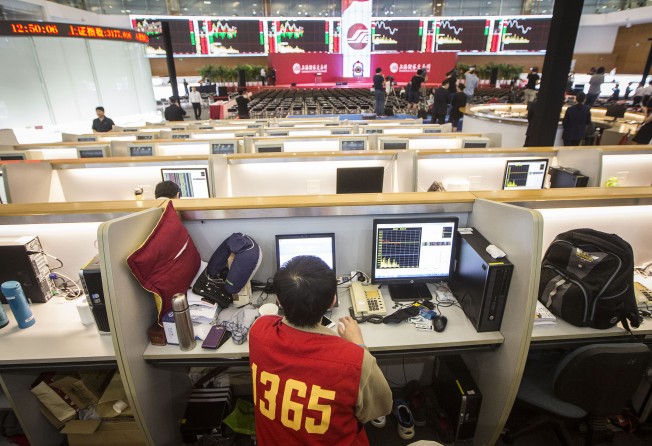Battle for control of China Vanke a sign of things to come
Chinese leadership hopes to give market forces full play in deepening reforms

The battle for the control of China Vanke could offer a glimpse into the transformation of the mainland’s economy as the leadership hopes to give market forces full play in deepening reforms.
Hostile takeovers have been rare since Beijing established stock exchanges on the mainland in the early 1990s, but the rivalry between Vanke’s management and Baoneng Group amid an economic slowdown will likely spawn imitators in the near future as insurance funds and privately owned businesses increasingly vie for a share in the Chinese economy.
“As long as the companies are public, there is nothing wrong with any investor bidding for control through aggressive purchase of shares on the secondary market,” said Han Haifeng, a Shanghai-based entrepreneur. “All investors are keeping a close watch on the progress to gauge whether it is a fair and transparent market.”
Analysts said more takeover battles would occur in the near future, as cash-rich institutions and individuals targeted listed, A-share firms with diverse ownership structures.
On the Shanghai and Shenzhen stock exchanges, there are about 40 companies where the largest shareholders have less than a 20 per cent stake, giving opportunities to investors seeking de facto control of those firms.
The single largest shareholder has the right to nominate the key executives of a public company and map out the main growth strategy for its development.
Su Kunquan, a researcher with Yingda Futures, said a faltering mainland economy and worries about a further slowdown had made stock prices attractive to some investors keen on gaining control of listed companies.
Insurers, grappling with a low bank deposit rate, have a voracious appetite for equity investments, particularly in solid developers and banks able to generate higher returns than interest income through dividend payouts.
The insurance regulator allows insurance firms to put up to 30 per cent of their assets into equities, but in July it raised the upper limit to 40 per cent if the insurers were to buy additional shares of blue-chip stocks.
“The deregulation gave insurers greater flexibility in asset allocation,” Xu Fei, an analyst with Sinolink Securities said in a research note. “It created a tremendous opportunity for insurance funds to increase the purchase of shares in quality firms.”
When mainland China established its stock markets, it was with the aim of helping cash-strapped state-owned companies raise funds.
The state-owned parents of the companies normally had two-thirds of shares locked up to ensure government control over the listed arms.
It was not until 2005 that Beijing launched a drastic reform of share structures, under which the state-owned shares became free-floating.
The reform made hostile takeovers easier but few took place.
The current leadership, in office since late 2012, has been encouraging private capital to participate in key sectors such as oil and banking, a central plank of the efforts to deepen market-based reforms.
Takeover battles on the stock market enshrining the principles of fairness, justice and transparency were a positive sign for the nation’s economic development, Su said, adding that it showed investors were at least bullish about the targeted firms’ prospects.
Since October, at least 20 firms have seen interest from new investors bidding for control.
An investor has to file a notice to inform other investors of a potential takeover plan after it buys a combined 5 per cent of shares in a listed firm on the secondary market.